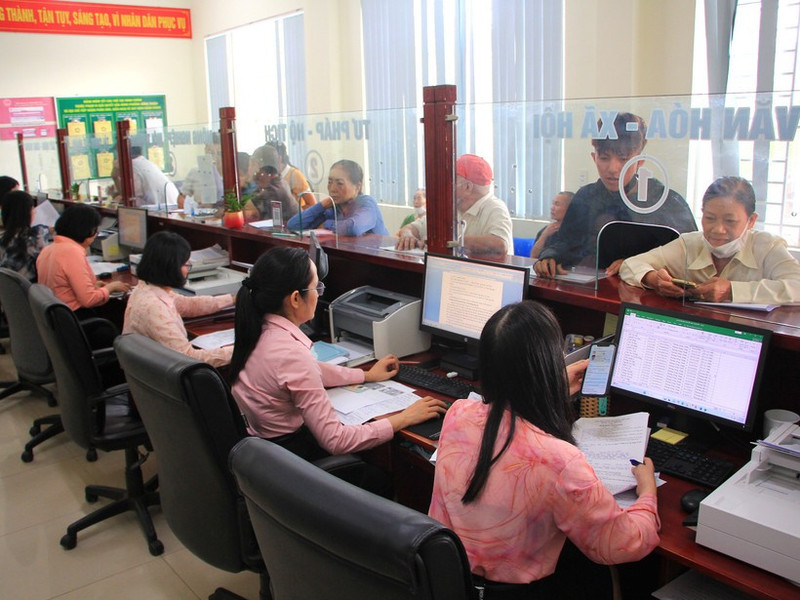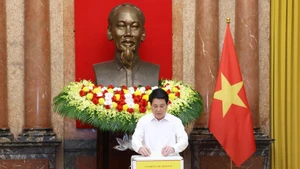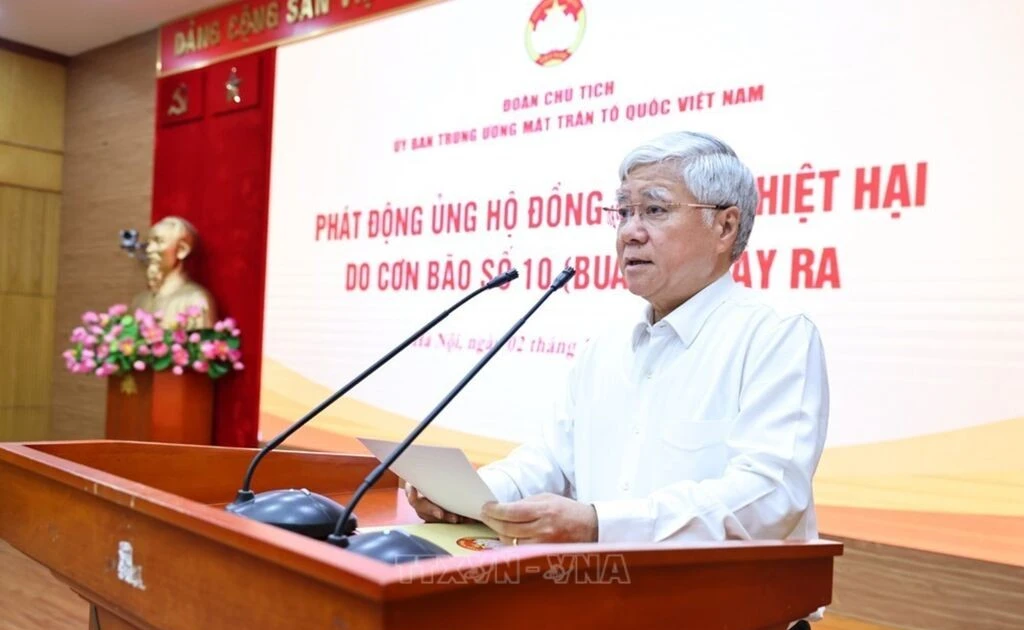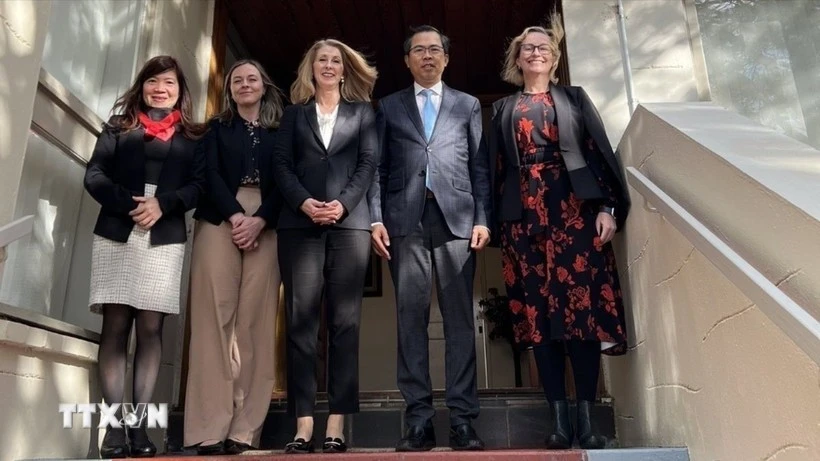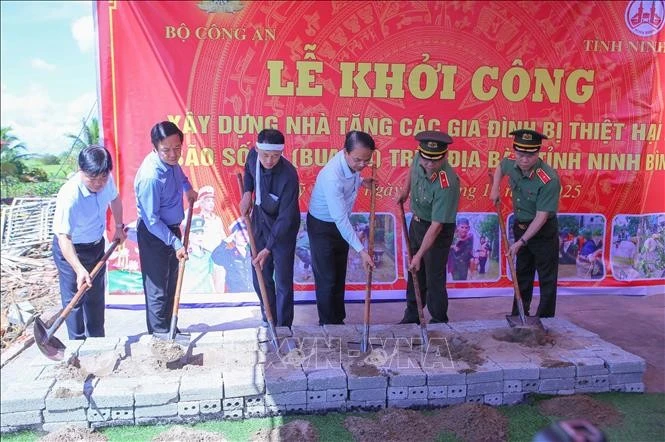This means that long-standing mindsets and working practices must change, officials must dare to take responsibility and swiftly adapt to the demands of the new situation.
Over nearly 40 years of implementing the renewal process initiated and led by the Communist Party of Viet Nam, the country’s economy has witnessed remarkable growth, while national defence and security have been firmly safeguarded, and foreign relations broadened.
The country has become one of the most dynamic economies, with GDP expanding dramatically. In 1986, Viet Nam’s GDP stood at just 8 billion USD while it reached 476.3 billion USD in 2024 – an increase of 59.5 times.
To safeguard the renewal process and realise the aspiration of building a “prosperous, strong, democratic, equitable and civilised nation”, Viet Nam must continue comprehensive and synchronised reform across five areas: economic institutions; building a facilitating and strategic State; thorough reform of the education system; restructuring the economy and renewing the growth model; and fostering private enterprise and domestic businesses as the key force and vanguard of economic development.
Among these, Viet Nam’s political system must pursue bold, comprehensive and synchronised reform. From streamlining the apparatus and enhancing operational effectiveness, to driving digital transformation, administrative reform, and improving the investment and business environment, all demonstrate the Party and State’s strong political will to build a modern, transparent, service-oriented system of governance.
This process is unfolding from the central to local levels. Every sector, agency and unit is required to review and innovate its operations, strengthen accountability, transparency and openness, and place citizens and businesses at the centre of service. This entails breaking away from entrenched mindsets and rigid habits that have often led to inertia. Those who fail to adapt – from senior leaders to civil servants and public employees – risk losing the opportunity to contribute, and may even fall behind the demands of the times.
Experience shows that the decisive factor in the success of any reform is people – those who directly operate the system. Changing mindsets, renewing methods, and cultivating a swift and decisive working style is imperative.
Leaders and managers at all levels must truly be the nucleus of reform. They are not only responsible for setting direction, but also for inspiring and motivating their teams. Reforming leadership thinking does not simply mean changing plans or methods of work; it is about adopting a strategic mindset, prioritising the common and long-term interests of the nation, daring to think, daring to act, and daring to take responsibility.
Civil servants and public employees directly carrying out tasks must adopt a proactive and creative spirit, optimising tasks, shortening processing times, and improving service quality. Administrative reform, IT application and digital transformation cannot succeed if those implementing them lack enthusiasm or are slow to adapt. At the same time, a culture of quick feedback and flexible problem-solving must be fostered to promptly address emerging issues.
The world is witnessing a strong shift from traditional economic models to modern ones such as the digital economy, green economy, circular economy and knowledge economy, alongside rapid advances in technologies such as AI, Big Data, IoT, robotics, blockchain and biotechnology. Nations no longer compete primarily on natural resources or cheap labour, but on innovation capacity, technological mastery and the development of the knowledge economy. Major powers and developed economies regard talent attraction and development strategies as core to competing for leadership in key technologies.
Reform and renewal mean that old regulations, procedures and working models will be replaced or adjusted. This may cause disruption and even anxiety among some cadres and employees. Yet reality shows that those who adapt quickly can seize opportunities to develop themselves and contribute more to the collective. Quick adaptation does not mean passively accepting change, but proactively understanding its essence, identifying one’s role and tasks in the bigger picture.
In this regard, each cadre and employee needs to cultivate three qualities. First, continuous learning – constantly updating knowledge and skills, especially in technology and modern management. Second, collaboration and cross-sector coordination – since reform often involves data integration and inter-agency linkages, close cooperation and transparent information-sharing are essential. Third, a results-oriented mindset – focusing on end goals rather than being bogged down in procedure or formality.
One key factor for the system to respond swiftly is individual responsibility. When each person understands that their work not only affects their own unit but also the progress and quality of the entire system, they will be conscious of doing their job correctly, sufficiently and well; ready to take responsibility for mistakes, and to learn from them to avoid recurrence.
Strong reforms in the political system will certainly earn the attention and support of the people and the business community, but they will also become targets for hostile forces. These forces seek to distort, slander and sow doubt about the correctness of the renewal path, inciting division within the great national unity bloc. They claim that Viet Nam is undertaking a “comprehensive regime change”, “abolishing the Party’s leadership role”, or “betraying the essence of socialism”…
Exploiting initial difficulties in implementing the two-tier local government model, some malicious actors spread rumours that streamlining the apparatus would cause “social instability”. Such views are biased and ill-intentioned, aiming to deny the legitimacy of this reform while undermining public trust.
In this context, individual responsibility, a spirit of renewal, and the ability to adapt quickly within the political system serve as a strong “shield”. At the same time, communication and policy explanations must be clear, easy to understand, easy to remember and easy to apply. Grassroots officials – those directly in contact with citizens – must be well-informed, provide convincing answers, and leave no “information vacuum” for hostile forces to exploit.
The initial effectiveness of streamlining the apparatus and implementing the two-tier local government model has confirmed that strong reform not only improves management efficiency but also opens new space for national development. A leaner apparatus, transparent operations, simplified administrative procedures and a favourable business environment will enhance national competitiveness, attract investment resources, and drive economic growth and improvements in people’s lives.
For reform to succeed, institutional reform, administrative reform, judicial reform and innovation in political system operations must go hand in hand. Above all, success depends on the will, determination and capacity of people – from leaders to every cadre, civil servant and public employee.
Timely, flexible action with a spirit of swift engagement and strong renewal not only creates an efficient, transparent apparatus, but also undermines hostile distortions against the renewal process. In this sweeping wave of reform, no one can stand aside. Each person is a link in the system; if that link is strong and flexible, the entire apparatus will be stable and progress rapidly. If weak and sluggish, the whole system will be affected.
Therefore, changing mindsets and practices, cultivating open thinking and quick adaptation, upholding responsibility, and being ready to face challenges – these are not only mandatory requirements, but also opportunities for every individual to affirm their value, contribute to shared development, and firmly safeguard the renewal process and the nation’s future.
